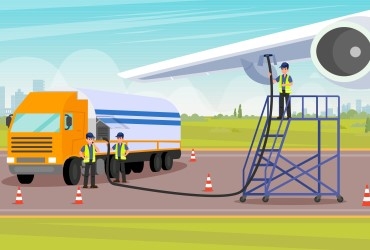Research to show that ammonia can be an alternative jet engine fuel
Ammonia, a compound of nitrogen and hydrogen, may be part of the solution for net-zero emission flights. A five-year NASA-backed research program is focusing on chemical kinetics simulation to see how the gas would behave powering an aircraft.

In the project, the University of Central Florida (UCF) will analyze, test, and qualify ammonia as an option for powering aircraft jet engines sustainably. The researchers want to simulate complex chemical reaction systems surrounding ammonia, including vaporization of liquid ammonia inside heat exchange tubes, heat transfer, and the combustion of ammonia and hydrogen in the air.
The goal of the UCF project is to be able to use ammonia as the main hydrogen carrier and thus leverage ammonia’s hydrogen components while only releasing safe emissions into the air.
Compared to pure hydrogen, ammonia is much easier to handle. It remains liquid at high altitudes and does not require the same additional cryogenic storage as hydrogen, SimpleFlying reports. An Australian company has announced its intentions to have a business jet in the air and operating (partially) on ammonia as soon as mid-2023.


